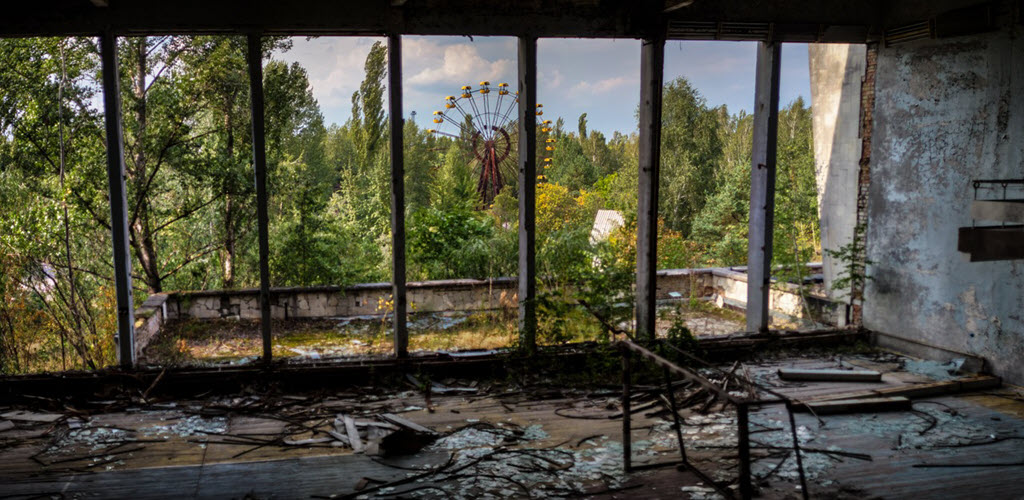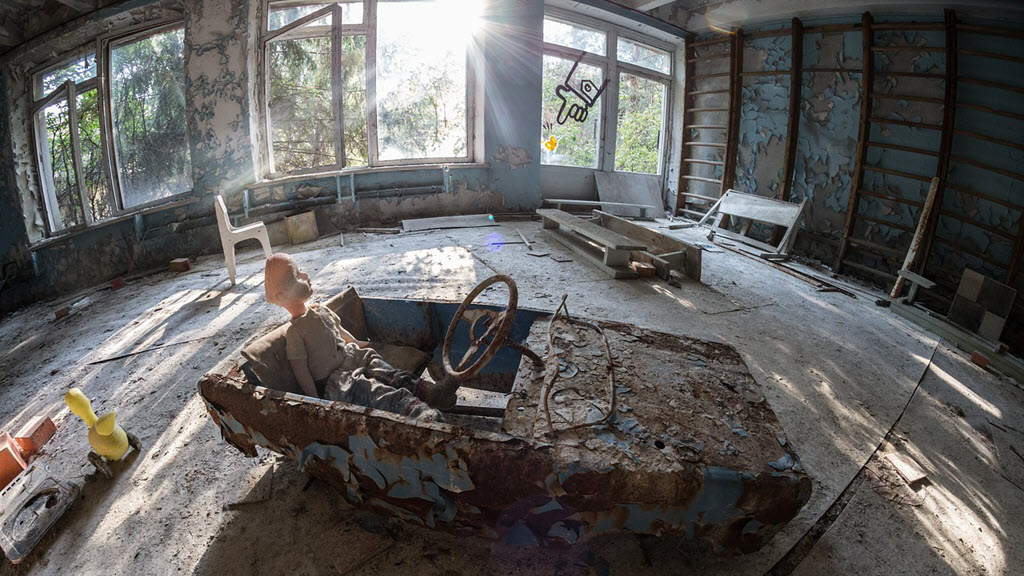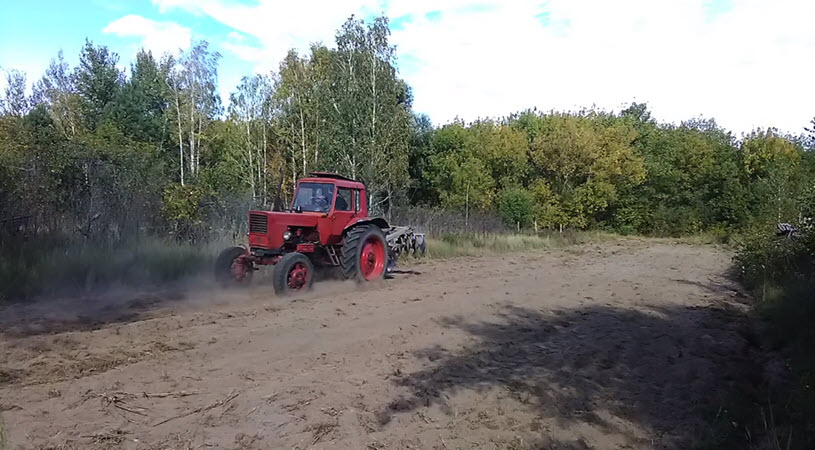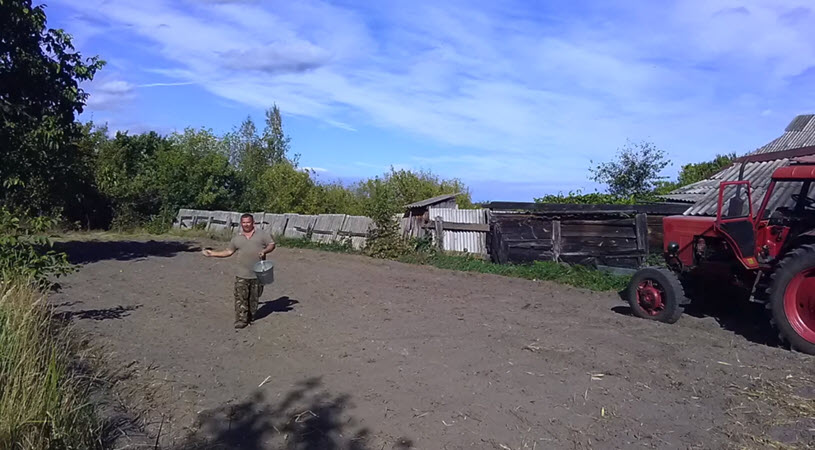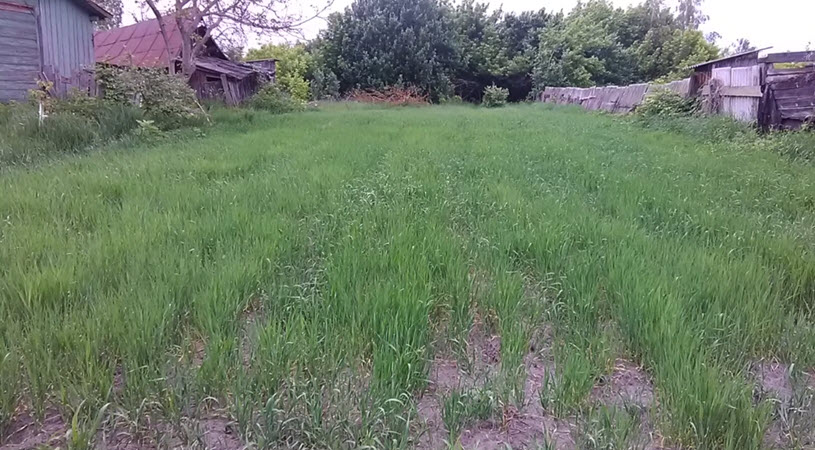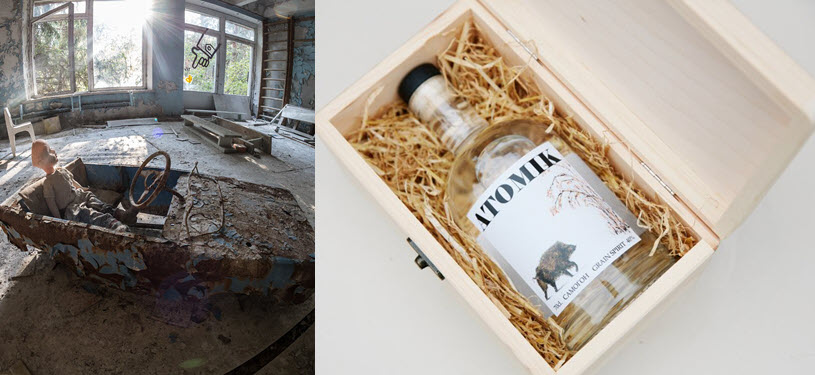
Let’s face it, we’ve all tried some distilled spirits along the way expecting to be delighted but instead we start looking for the nearest spittoon. Generally it’s because the taste didn’t necessarily agree with our palette or maybe we simply didn’t know that an aperitif was supposed to taste like that. Either way, this new release from the Chernobyl Spirits Company made with grains and water from Chernobyl may just take things to a whole new level.
33 years ago on April 26, 1986 the world was horrified by the worst nuclear power plant accident in human history. Chernobyl’s nuclear reactor No. 4 was being tested with a simulated power outage when things went terribly wrong and resulted in an uncontrolled nuclear chain reaction. The catastrophic plant meltdown continued to release radioactive contamination into the air for nearly 10 days. When it was all over an area known as The Chernobyl Exclusion Zone covers a 30 kilometer (approximately 18 mile) area where no one is allowed to live.
Atomik Vodka – A Radioactive-Free Bottle of Chernobyl Vodka
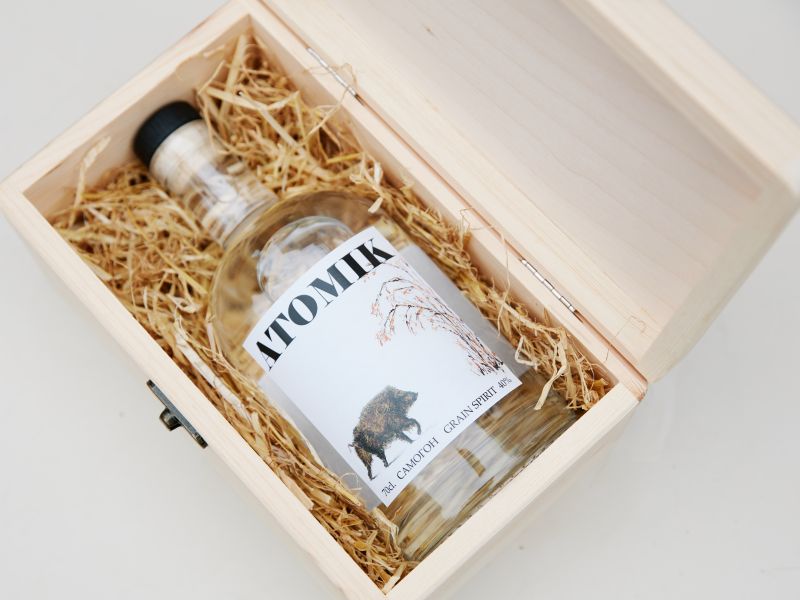
The group led by Jim Smith Professor of Environmental Sciences at University of Portsmouth has distilled a bottle of vodka using local water and grains from Chernobyl. Smith has released a three-year research project into the transfer of radioactivity to crops grown in the Chernobyl Exclusion Zone. After extensive testing they can’t find any radioactivity, plutonium, americium, cesium, or strontium, so from a radiologic point of view, it’s safe to drink.
The Most Important Bottle of Vodka in the World?
“30 years after Chernobyl, the most important thing for these areas around the abandoned areas, around the main exclusion zone, what they need is jobs and investment and economic growth,” said Professor Smith. “What we are trying to do is make an artisan, kind of homemade but high quality grain spirit from grain grown in the regions affected by the Chernobyl accident. We’ve subjected this to a battery of tests and we can’t find any radioactivity, no plutonium, no americium, no cesium, no strontium, so from a radiologic point of view, it’s safe to drink.”
“We’ve only got one bottle so far but I think this might just be the most important bottle of vodka in the world. Not for what it is but for what it represents. Hopefully we can give back 75% of the profits from the enterprise to the local community to help support their social and economic development.”
“Many thousands of people are still living in the Zone of Obligatory Resettlement where new investment and use of agricultural land is still forbidden.”
The team found some radioactivity in the grain: strontium-90 is slightly above the cautious Ukrainian limit of 20 Bq/kg. But, because distilling reduces any impurities in the original grain, the only radioactivity the researchers could detect in the alcohol is natural Carbon-14 at the same level you would expect in any spirit drink.
They have diluted the distilled alcohol with mineral water from the deep aquifer in Chernobyl town, 10km south of the reactor, which has similar chemistry to groundwater in the Champagne region of France – and is also free from contamination.
They are setting up a social enterprise “The Chernobyl Spirit Company” to begin to produce and sell “ATOMIK”, a high quality home-made vodka or “moonshine”.
Radiation Isn’t Now a Significant Health Risk
“We don’t think the main Exclusion Zone should be extensively used for agriculture as it is now a wildlife reserve,” said Professor Smith. “But there are other areas where people live, but agriculture is still banned.”
“We aim to make a high-value product to support economic development of areas outside the main Exclusion Zone where radiation isn’t now a significant health risk.”
The report has been positively received by the State Agency of Ukraine for Exclusion Zone Management.
Mr Oleg Nasvit, First Deputy Head, said: “We welcome this initiative to use abandoned lands to help local communities. It is important that we do everything we can to support the restoration of normal life in these areas whilst always putting safety first.”
Mr Nasvit added: “I’d call this a high quality moonshine – it isn’t typical of a more highly purified vodka, but has the flavour of the grain from our original Ukrainian distillation methods – I like it.”
Would You Try Atomik Vodka?
That’s a hard “Nyet”(Нет).
Nuclear clean-up is scheduled for completion in 2065.
Please help to support Distillery Trail. Sign up for our Newsletter, like us on Facebook and follow us on Twitter.


